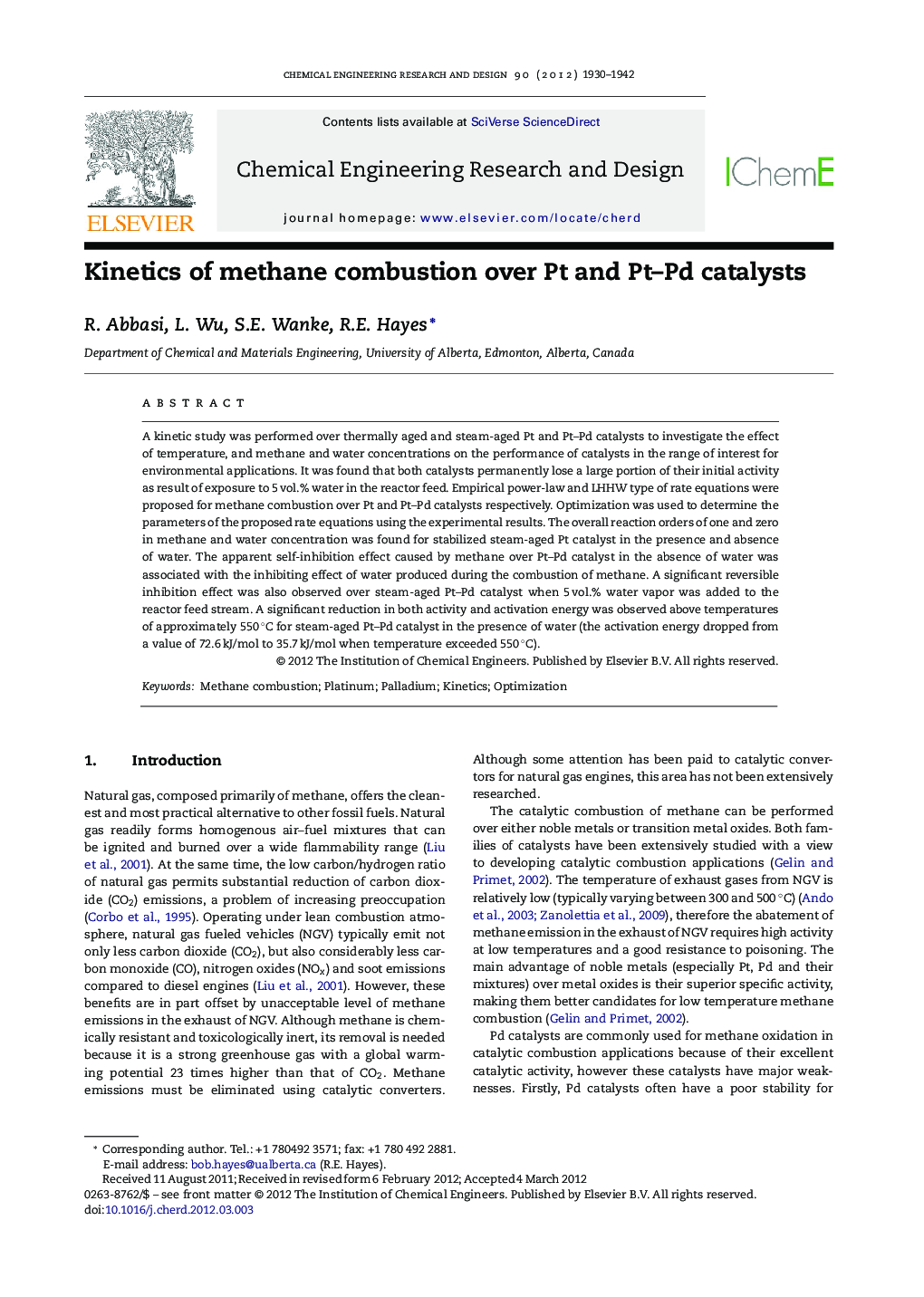| Article ID | Journal | Published Year | Pages | File Type |
|---|---|---|---|---|
| 621746 | Chemical Engineering Research and Design | 2012 | 13 Pages |
A kinetic study was performed over thermally aged and steam-aged Pt and Pt–Pd catalysts to investigate the effect of temperature, and methane and water concentrations on the performance of catalysts in the range of interest for environmental applications. It was found that both catalysts permanently lose a large portion of their initial activity as result of exposure to 5 vol.% water in the reactor feed. Empirical power-law and LHHW type of rate equations were proposed for methane combustion over Pt and Pt–Pd catalysts respectively. Optimization was used to determine the parameters of the proposed rate equations using the experimental results. The overall reaction orders of one and zero in methane and water concentration was found for stabilized steam-aged Pt catalyst in the presence and absence of water. The apparent self-inhibition effect caused by methane over Pt–Pd catalyst in the absence of water was associated with the inhibiting effect of water produced during the combustion of methane. A significant reversible inhibition effect was also observed over steam-aged Pt–Pd catalyst when 5 vol.% water vapor was added to the reactor feed stream. A significant reduction in both activity and activation energy was observed above temperatures of approximately 550 °C for steam-aged Pt–Pd catalyst in the presence of water (the activation energy dropped from a value of 72.6 kJ/mol to 35.7 kJ/mol when temperature exceeded 550 °C).
▸ In dry conditions, fresh Pt–Pd catalyst is more active than fresh Pt catalyst. ▸ Both catalysts permanently lose activity after exposure to 5 vol.% water. ▸ For Pt catalyst, the reaction kinetics can be modelled using a first order reaction. ▸ For Pt–Pd catalyst, the reaction kinetics can be modelled using an LHHW type rate equation.
